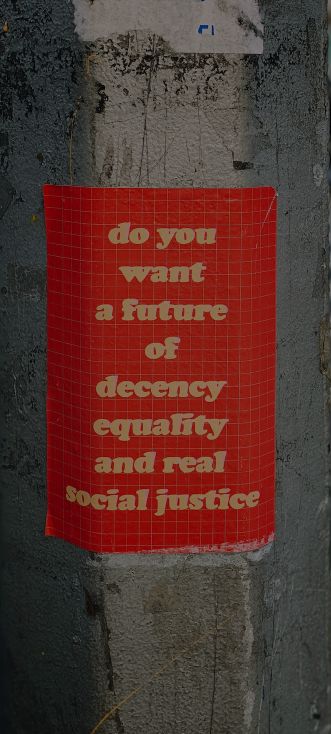The challenges of a
Just Transition
The social consequences of mitigation policies

The global economy has been structured without consideration for its negative impact on the environment. As modern social and economic systems have been built on a fossil-fuel-based economy, transitioning to a low-carbon economy is a significant and transformative process that will require changes across all sectors of society.
While mitigating climate change has often been stated as a positive, less attention has been paid to the impacts and social consequences of mitigation policies which can have adverse social consequences if not governed and managed appropriately. Decarbonization not only relies on innovation and diffusion of low-carbon technologies, but also on social, political, and economic support to create enabling conditions for transition. Whatsmore, without enabling conditions, low-carbon development can be rejected through both political and social distrust of the process. To mitigate against the adverse effects of climate change policies and embed social justice in the decarbonisation process, Just Transition has been proposed.
A Just Transition has become popularly understood as alleviating adverse effects of decarbonization which would come in the form of job losses, unemployment, and rapidly changing industry leaving people behind. The challenges of a Just Transition are just as vast as the changes required for decarbonisation as changes will need to occur in households, governments, companies, and corporations to ensure a sustainable and well-being-oriented future for all.
A Just Transition is critical for workers and communities who may suffer economic or social deprivation as a result of the shift to a low-carbon economy. Without advanced planning, job losses are expected as economies and societies shift away from environmentally damaging industries and practices. this can result in drastic effects on individuals and communities if a program is not put in place to safeguard both collective and individual well-being. For workers, and those who may suffer economic or social deprivation, Just Transition is critical. A person’s well-being is often centered around their dignity, place in the community, financial and other material means, as well as non-material factors that contributed to a person’s well-being.
While there is an urgent need for climate action, apathy towards those negatively affected by decarbonization efforts may slow down the low-carbon transition. A Just Transition ensures that social justice becomes embedded within the transition period and that social contracts are not broken but renewed for allowing societal-wide decarbonisation to occur.
A Just Transition process goes beyond issues related to climate change mitigation but aims to engage and actualize the developmental aspirations of society to increase the acceptance, duration, and effectiveness of mitigation efforts. This can lead to removing malignancies that exist within the society resulting in poverty eradication, implementation of the Sustainable Development Goals, and equitable outcomes and opportunities for all.
There is increased recognition of the number of different actors involved in approaches for mitigation. These include non-state and non-national actors, transnational initiatives, and public-private entities, as well as the recognition of the wide variety of stakeholders including Indigenous People, local and youth communities, cities, and transnational initiatives. Facilitating cooperation and social dialogue between stakeholders will be key to a Just Transition.
